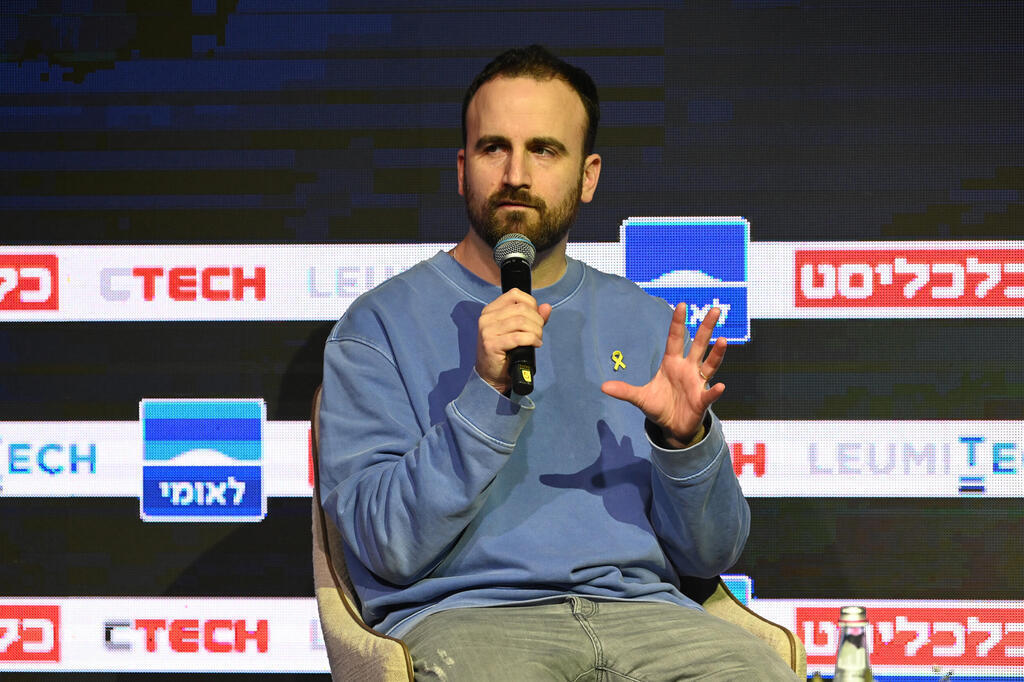Ron Gura, a veteran of Israel’s tech scene and a co-founder of several startups, has turned his attention to an overlooked part of the human experience: the period after losing a loved one. Watch the full interview below:
Interview with Empathy CEO Ron Gura
(Video: Hillel Fuld)
His company, Empathy, launched in 2021, has quickly become a leading platform in the emerging “grieftech” space, offering a combination of emotional support and practical tools for navigating estate settlement. With $162 million raised to date—including a recent $72 million Series C round—Empathy now serves 45 million people in the United States through partnerships with more than 35 major insurance providers.
“Empathy is the friend you wish you had when you lose a loved one,” Gura said. “It’s that knowledgeable kind of neighbor who happens to be a lawyer, maybe also a former social worker, a really good coordinator, really good with bureaucracy—but also a good listener.
"We fundamentally believe grief is made hard by logistics, and logistics are made hard by grief. Only when you create a truly cohesive experience—one that can mix between what scalable technology can do with what humans are best at—can you really help. Bottom line: we save people time, money and headaches when they lose a loved one."
Gura’s motivation is personal. He lost his brother, and the experience exposed him to the logistical and emotional hurdles that families face in the aftermath of death. That pain became the impetus for a new kind of platform that offers both grief guidance and administrative relief.
Empathy’s app provides services ranging from grief counseling, meditations and journaling prompts to probate assistance, property management and benefit claims. Users can access curated content, connect with support communities, or delegate tasks to family members. A newer product, the Life Vault, helps people organize documents and preferences ahead of time—wills, medical directives, funeral wishes—so their families don’t have to guess later.
"We’re not really about death—we’re about empowering people through bereavement and everything that comes after," he said. "Loss is inevitable. It’s going to happen—100%. Now the question is: how can we help you get back on your feet again? How can we face the change—the change you didn’t want in your life, unlike the change you’re looking for? Our mission is to take all the red tape out of the way.
"When we think about our capabilities, it’s really simple: empower the family going through loss. Don't do anything that is neutral or negative. Never increase the share of wallet spent during this life transition—only decrease it. That’s why it has to be a B2B2C model, and it’s why we stay 100% aligned with families’ motivations and best interests. "
The company’s U.S.-focused approach is deliberate. Gura acknowledged that while Empathy’s roots are in Tel Aviv, the Israeli market is too small to justify full deployment—at least for now. However, internal interest remains high, and he hinted at possible future expansion, especially if a local insurance partner steps up.
"If one of the big life insurance companies is listening right now—Harel, Migdal, Phoenix or whoever—we might call one of you for a deal. Here’s an exclusive for the one interview," he said, laughing.
Empathy’s business model stands out in the tech ecosystem. Instead of charging bereaved families directly, the platform is distributed through life insurance companies as part of their benefit packages. According to Gura, the value proposition is clear: "Generating loyalty."
"[Carriers] are trying to keep that relationship, show their true colors during that moment of truth, and explain to the next of kin in so many different ways why it makes sense to consider them as a reinvestment opportunity," he explained.
Get the Ynetnews app on your smartphone: Google Play: https://bit.ly/4eJ37pE | Apple App Store: https://bit.ly/3ZL7iNv
"If I oversimplify this, you can think about Empathy as a glass of wine while you wait for your table at a very expensive $1 trillion restaurant, where the wine has to be really good and thoughtful. Or you can think about it like a towing service on top of your car insurance—where, for a fraction of the premium, you get additional levels of support and peace of mind. Here, you're buying financial peace of mind, and the insurance company is adding emotional peace of mind and administrative peace of mind on top."
With an estimated $20 trillion in wealth expected to transfer from baby boomers to the next generation over the coming decade, Empathy offers insurers a chance to stay connected with beneficiaries, potentially turning them into lifelong clients.
Investors seem to agree. In addition to backing from Aleph, General Catalyst, Index Ventures and Entrée Capital, Empathy’s latest funding round drew support from Adams Street and Brewer Lane.
Perhaps most notably, 11 financial institutions—including MetLife, New York Life, Prudential and Allianz—joined together to form the Empathy Alliance, taking minority stakes in the company and collaborating on strategic deployment. These companies, which typically compete against each other, have united around Empathy's mission to improve the beneficiary experience during wealth transfers.
"Any other day of the week, these guys are competing against each other," Gura said. "These and many more are coming together and saying: If a company like Empathy exists and thrives, then we all win, because we have to elevate the beneficiary experience. We have to find ways to create more value for the next of kin."
Gura credits part of the company’s success to its brand-forward approach, a strategy that recalls another Israeli startup: Lemonade. “We had to start with the brand because of the aversion people have to death," he said. "We definitely think empowering families is sexy."
With a 76 net promoter score (NPS) and 100% gross client retention, Empathy is not just breaking taboos—it’s setting new standards for what compassionate tech can look like.







